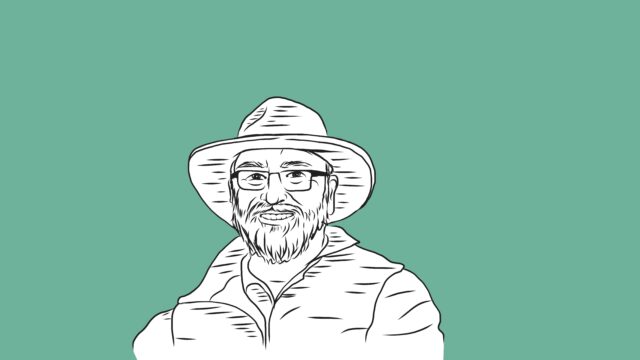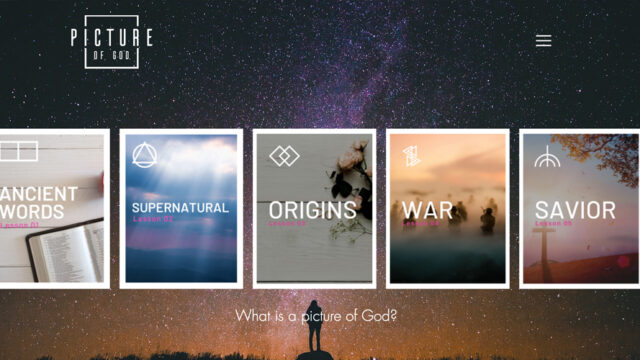For Christians, every business is a service industry.

Religion and business are not two separate things; they are one.”1
What’s the Connection?
Imagine for a moment a world in which business and religion were truly united, a world in which the golden rule—a common reference to Jesus’ teaching from the Sermon on the Mount (“Do to others whatever you would like them to do to you” [Matt. 7:12, NLT]2—was the genuine mission statement of every organization. A world in which faith in a better tomorrow was the driving anthem of both business and religion.
What would that look like? What questions would be asked in the boardrooms of these organizations? What would happen if a large Fortune 500 company, or faith-based entity, formally adopted and genuinely lived out Jesus’ golden rule as its mission statement? If it relentlessly focused on these questions: What are people’s true, life-motivating needs? And how can we not only meet, but exceed, those needs?
What would happen if the principles of the golden rule were sown into the very fabric of its organizational culture and people kept each other accountable regardless of hierarchy? Can we envision the trickle-down effects that such a profound expression of other-centeredness would have on how organizations operate?
In this context individuals who previously focused on driving organizational goals that simply sought to satisfy people’s basic needs (more often than not for selfish gain) would now seek to explore and personally understand the real life needs of people and focus on the explicit desire to create delight in everyday human experience.
Take, for example, Steve Wheen, a British designer who began planting flowers and miniature gardens in the potholes that appeared in the public footpaths of London. Where people once stepped around to avoid hazardous potholes, they were now stopping and taking pictures, enjoying the very scene that had been created. Wheen states that this project was “all about creating unexpected moments of happiness.”3
The walking public was captivated by these beautiful engaging garden scenes “growing” out of the menacing holes in the sidewalk. Not only did they avoid potential hazards, but the scene aroused in them surprising joy and delight. Wheen’s focus on creating unexpected moments of happiness resulted in his creating an experience for an everyday problem that far exceeded people’s expectations. Whether Wheen realized it or not, he was living out the golden rule.
Jesus’ directive encapsulated in the golden rule is much deeper than simply doing the minimum for each other. Although it is a good place to start, it is less likely to make people stop, think, and be engaged with a message, a product, a service, and ultimately with each other. If Wheen had simply placed a warning sign next to the potholes, it would have been a thoughtful gesture. Many would have acknowledged and perhaps quietly appreciated the helpful directive as they continued walking on their way.
But the unexpected beauty of God’s creation, a garden springing forth from dark and dirty potholes, captivated people’s imaginations. A thoughtful, simple, creative act of human kindness made people pause in their busy lives and wonder at the arresting scene before them.
A Celebration of Risk
A common premise of both business and religion is a willingness to take risks. Small business owners invest in a strategic location before realizing any returns. A consecrated pastor moves his family into a community with no Adventist presence, believing that building relationships and providing compassionate neighborliness will result in planting a church to the glory of God. A venture capitalist invests in multiple ventures in hopes that just one will be a success. Faith in a better tomorrow drives both religion and business to believe that taking a risk is worth the potential reward.
Likewise, Ellen White wrote, “Christ risked all. For our redemption, heaven itself was imperiled.”4 When “Christ risked all,” His risk was not for a moment of happiness; it rather set the groundwork for an eternity of joy.
This is something to make us stop and wonder in complete awe. We are so greatly valued that God would risk everything so that we would have the opportunity to live out an eternity of bliss with Him in heaven. For God, the reward was worth the risk.
Living out the golden rule in the world of business and religion requires risk. Not everyone will appreciate our desire to exceed their expectations, yet Christ commanded “love your enemies” (Matt. 5:44), an imperative with which humanity indeed wrestles.
In the highly competitive business world, for example, commercial organizations often imply that the accelerating pace of change in all aspects of business makes it difficult to adhere to a mission statement that explicitly espouses its intention to do good in the world. However, as Len Sherman, a professor at Columbia Business School, states: “It is precisely because of, not despite, the rapidly changing business environment, that a company needs an anchoring ideology to guide it.”5
The ideology is made even more powerful when we realize that Scripture does not simply provide an ideology; it provides an anchoring, life-giving truth informing the way we live our lives and do business. Thus the golden rule, the desire to glorify God in every aspect of our life, becomes our unwavering North Star.
When we experience the transforming love of God as He creates beauty out of the darkest potholes of our lives, we organically live out the golden rule in every human interaction. Our focus will not be on simply doing the minimum for others—but we will unselfishly desire to exceed every expectation: “Let your light so shine before men, that they may see your good works and glorify your Father in heaven” (Matt. 5:16).
How differently might the world move if our business ideology and religious theology were genuinely anchored within the principle of “do to others whatever you would like them to do to you”?
Even if kindness is not reciprocated, start and never stop planting flowers in the potholes of people’s lives.
1 Ellen G. White, Christ’s Object Lessons (Washington, D.C.: Review and Herald Pub. Assn. , 1900, 1941), p. 349.
2 Scripture quotations marked NLT are taken from the Holy Bible, New Living Translation, copyright © 1996, 2004, 20015 by Tyndale House Foundation. Used by permission of Tyndale House Publishers, Inc., Carol Stream, Illinois 60188. All rights reserved.
3 www.thepotholegardener.com/about-1/.
4 E. G. White, Christ’s Object Lessons, p. 196.
5 www.forbes.com/sites/lensherman/2017/04/03/corporate-mission-statements-dont-really-matter-unless-you-want-to-be-a-great-leader/2/#7ef78b1b11aa
Jared Thurmon leads strategy and innovation for Adventist World.
Daniel Bruneau, Ph.D., leads user experience research, branding, and design for Adventist World.
Never stop planting flowers in the potholes of people’s lives.








